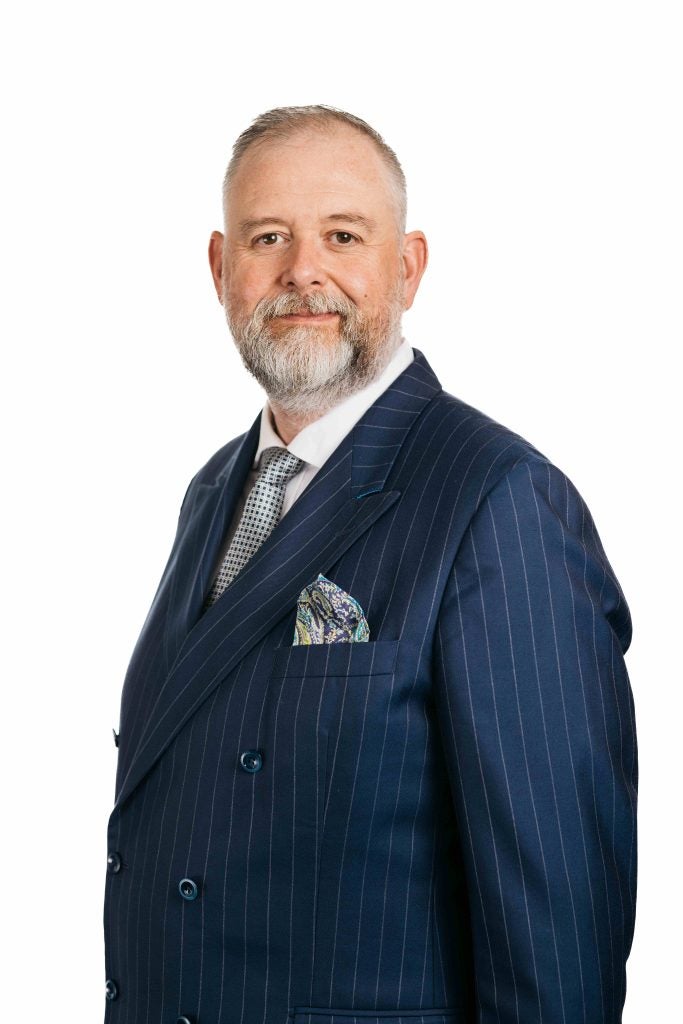The Private Banker International: Middle East 2016 conference provided a forum for industry leaders in the GCC to focus on the growing wealth industry in the region. The day included a variety of keynote presentations and expert panel discussions. John Schaffer highlights the key takeaways from the event
The inaugural Private Banker International Middle East conference took place on March 14 at the Ritz-Carlton hotel in Dubai, in the illustrious location of the Dubai Marina. The conference was attended by industry leaders in the region, from and related to the wealth management and private banking industries.
The UAE presents a growing market for the wealth industry, with Dubai attracting numerous HNWIs (high net worth individuals) including ex-pat Europeans, NRIs (non-resident Indians) as well as the local, wealthy Arab community. The conference presented a forum for the region’s industry leaders to discuss, in detail, the issues pertaining to this growing market.
The conference was opened by a keynote speech from PBI’s editor, Meghna Mukerjee, who gave a overview of the private banking industry in the GCC. Mukerjee profiled the typical HNWI in the region and outlined some of the opportunities and challenges facing the private banking industry going forward.
Meghna Mukerjee, Private Banker International
Session One – The evolving private banking landscape in 2016
Presentation: Digitising Wealth Management – Pierre Bouquieaux (Temenos)
In his keynote presentation, Pierre Bouquieaux, product director for wealth management at Temenos, spoke about digitisation in the wealth management industry, offering his viewpoints from a technology provider perspective. Bouquieaux said that banking was undergoing a “digital revolution”, but “no true definition of digitisation in wealth management” was proving to be a real challenge for the banks.
Bouquieaux suggested that well thought out technology investment would be essential for addressing the key challenges that the industry is facing, such as changing customer behaviour, increasing operating costs, new entrants, and technology disruption itself.
He said that one of the most important aspects for the wealth industry going forward was to concentrate on big data.
“HNWIs have portfolios and assets around the world. What they are looking for is for wealth managers to deliver them a consolidated view of all of those assets. So Big Data, and the importance of managing that data is extremely important. Big Data gives wealth managers strong, consolidated views of clients’ expectations”, he said.
Another area in which Bouquieaux felt that the wealth industry was under invested, was in the provision of mobile services. He suggested that the industry is “really behind compared with retail banks”, and that wealth managers and private banks needed to play catch up to meet the demands of their clients.
Bouquieaux added that globally only 25% of wealth managers provide customised advice online.
He also spoke about whether the new entrants, such as roboadvisors, were presenting a threat or an opportunity for wealth managers. Bouquieaux said: “New entrants are inspirational in terms of what they are delivering to your customers, or what they try to deliver to your customers.”
He added: “A third of HNWIs are looking for a digital experience. They’re looking to get digital advice and prefer to work around digital.”
Bouquieaux added that it was of paramount importance for wealth managers to focus on the tools that the next generation of clients demand. He said that in mature markets such as the US and Europe, “almost 90% of the wealth can leave asset management companies if you don’t provide to the new generation the right tools they want to use”.
He said that in an emerging market such as several countries in the Middle East, this gap in provision created a great opportunity to engage the wealthy next gen. “There’s a lot of money to attract if you provide the right tools and the right items for those huge new generations of people”, he said.
Pierre Bouquieaux, Temenos
Bouquieaux also discussed what it meant to have a “strong digital strategy”. He said that financial institutions had to have an agile approach towards technology innovations.
“It’s not just about replacing your core banking system and being ok for the next 10 years – a digital strategy is all about innovations being agile and it requires constant investment and attention. This is an ongoing process all the time, and when you’re looking at defining your digital strategy, this is something you need to keep in mind.”
Bouquieaux added that it is also important for wealth managers to integrate their own staff into their digital strategy, with relationship managers (RMs) having access to the same tools that are being offered to clients.
“A digital strategy must address your own staff requirements, so that it will enable and empower your RMs much more than competing with your RMs.
“Don’t see digital strategy as a competitor to the traditional way of doing wealth management. It will help RMs to reinforce their positions, and in some areas, educate them.”
Expert panel discussion: Wealth management trends in the GCC and UAE regions
Speakers:
Mohammed Azab, head of private banking, Abu Dhabi Islamic Bank Wealth Management
Chris Cocker, Senior Investment Advisor, Middle East and Africa, Barclays
Giambattista Atzeni, senior director, MEA & Turkey, BNY Mellon Wealth Management
Anthony Habis, UAE and KSA and global family office MENA, Citi Private Bank
Pierre Bouquieaux, product director, wealth management, Temenos
Chairperson:
Meghna Mukerjee, Editor, Private Banker International
Session one panel
The first expert panel discussion delved deeper into the wealth management trends in the GCC region. The panel begun by discussing what made the Middle Eastern private banking market so interesting.
Anthony Habis, Citi Private Bank, said that the region was witnessing a significant growth in its ultra wealthy population:
“In the Middle East in 2014/15, we saw one of the largest growths in UHNW population globally, only third to Mexico and Nigeria.
“This market is very interesting for us – where wealth is growing at such a rapid rate by number of UHNWIs, as well as capital, with limited downside and good visibility on risk and controls. For Citi specifically, its one of our top five growing markets.”
Chris Cocker, Barclays, suggested that one unique factor of the Middle Eastern market was investors’ focus on real estate:
“You talk to any local investor here and the first thing they want to talk about is property. There is an interest in both London and European property, and a growing interest in New York property.
“I reckon that 50% of all our RMs’ time is spent talking about property.”
Mohammed Azab, Abu Dhabi Islamic Bank, mirrored Cocker’s statement, suggesting that property was a predominant part of ADIB clients’ wealth, both in Dubai and internationally. Azab said that his perspective was slightly different from the other panel members as he represented a local, Islamic bank.
“Our business is different from international banks. We deliver on what we call an onshore private banking model, which basically concentrates on offers largely targeted at UAE nationals. How its different is the concentration of wealth – we have this humungous opportunity to do business with fewer individuals who can give you access to multiple business opportunities.”
Giambattista Atzeni, BNY Mellon, said that one of the key issues for clients in the region was the concern over the transfer of wealth, suggesting that it was “by far the most dominant element” of discussions with clients. Atzeni said that this was a developing issue for this region, as the majority of wealth had only been created within the last 30/40 years in contrast to mature private banking markets.
The discussion then moved onto how Dubai differed from other global financial centres such as London, New York and Singapore.
Atzeni, BNY Mellon, said: “The main difference is that although Dubai is significant for the region, and the region as a whole doesn’t really have that breadth of capital markets that a place like Singapore or London would have. Market capitalisations, if you look across the GCC countries, are a fraction of what you see elsewhere.
“However, Dubai has positioned itself well over and beyond the GCC and the Middle East region. Africa is an integral part of it. At the end of the day, Dubai has managed to attract intellectual capital that goes beyond private banking.”
Atzeni added that one differentiator of the region is its approach to single family offices (SFOs), where a specific legal framework had been created for the running of these institutions.
Pierre Bouquieaux, Temenos, said:
“The difference is certainly in terms of the maturity of the market and also the types of services that are offered. With wealth management in mature markets such as the US, you still have a significant proportion of the assets within discretionary asset management, compared to what you find here in Dubai.
“I think where you can establish a good parallel is between Singapore and Dubai in terms of the diversification of assets.
“Another big difference is that I have the impression that we don’t have to look so much into tax optimisation in this region as we have to do in some other countries.”
Habis, Citi Private Bank, said that the Dubai market differed due to its location – attracting wealth from the surrounding areas. He said that the geopolitical uncertainty in the Middle East region had given Dubai an edge, where it is seen as a relative safe-haven. Habis added that Dubai is also attractive due to its transparency and strong legal framework.
The conversation then moved on to technology, and whether it was a significant differentiator in attracting HNWI clients.
Chris Cocker, Barclays, said that digital provisions are becoming more significant as clients become more global. He said that this was imperative for the mass affluent sector where there was less likelihood of an interaction with a RM. However, he also suggested that demand for digital provisions “drift back” for UHNWIs, as they are “more interested in doing things in person than online”. However, he thought this would change in the future.
Cocker also said that implementing large technology systems “scares banks” as “it’s difficult to know what you have to do”.
Session 2: Wealth management and the tech savvy next gen
The three presentations from the second session concentrated on the needs of the next generation and the role of technology for the wealth industry to service its clients satisfactorily.
John Schaffer, Private Banker International
Sajid Iqbal, AVP, head of treasury and private banking operations at Habib Bank AG Zurich, spoke about how wealth managers could secure the business of the next-gen client base amidst the estimated transfer of $2tr in wealth over the next five years.
He outlined the challenges that the current private banking model faces, saying that “the old way of doing business in private banking won’t survive”. He said that the next generation of investors think differently about advice and bring new attitudes and expectations to the wealth management industry. Iqbal added that the wealth management industry will have to be mindful of the growth of roboadvisors, and be able to accommodate the needs of retail investors who are demanding access to the same asset classes and investment strategies as HNW or institutional investors.
Sajid Iqbal, Habib Bank AG Zurich
Next presenter Abhra Roy, global product line manager, Finacle Wealth Management product line at Infosys Finacle, spoke about the impact of digital on the wealthy management practice and assessed what transformations were required at the fundamental level for banks to be truly digital.
Abhra Roy, Infosys Finacle
Suraj Thandi, wealth consultant at Findsbury Associates, spoke about the importance of change in the industry during his presentation. He said that the GCC region was a significant growth area, but that the region was behind in terms of transparency, and that clients did not always fully understand cost structures or the assets that they were investing into. He also said that over a third of HNWIs in the Middle East keep their wealth offshore, and that there was “some work to be done to build products that are viable and sustainable going forward”.
Suraj Thandi, Findsbury Associates
Expert panel discussion: The digital age of wealth management and the millennial client base
Speakers:
Nicholas Hacking, director-sales, ERI Bancaire
Suraj Thandi, wealth consultant, Findsbury Associates
Sajid Iqbal, AVP, head of treasury & private banking operations, Habib Bank AG Zurich
Abhra Roy, global product line manager, Finacle Wealth Management product line, Infosys Finacle
Chairperson:
John Schaffer, Reporter, Private Banker International
Session two panel
The second panel discussion focussed on the investment trends of millennials and the role of technology in servicing this client segment. The presenters were joined by Nicholas Hacking from ERI Bancaire.
The conversation started with the panellists discussing how the private banking operating model would change in the future. Suraj Thandi, Finsbury Associates, continued on the theme of regulatory change in the region, suggesting that there was a real need for development. Thandi also compared the region to the UK market, which he felt had become overly regulated in the post financial crisis period. He said: “There has to be a mid point between what Dubai is like today and what London is like”.
Sagid Iqbal agreed with Thandi’s point suggesting that there “needs to be more protection of investors in the GCC region”.
Nicholas Hacking, ERI Bancaire, said that technology will have a significant influence on operational change, allowing private banks to be more cost effective, and be able to take into account regional differences.
Abrha Roy, Infosys Finacle, said that digital would change wealth management into a “more level playing field”. He added: “You do not know where the competition will come from. It could be from retail banks, it could be from fintechs – so there will be a change in approach to the business model.”
The discussion moved onto the next generation wealthy clients’ behavioural trends. Hacking said:
“I think the next-gen are by definition less trusting and less willing to accept whatever they’re told. Equally, trust is going to be essential if you want to build up a long term relationship with anybody. Technology can help, but it’s not going to be the only thing.”
The panel then discussed whether fintech players could completely disrupt the wealth management industry. The resounding opinion was that the industry would remain a “people business”, as Hacking commented. Thandi said: “Technology will never replace that human element. People buy from people, they trust people.” However, Roy said that technology will be important for attracting millennials going forward, “especially in the mass affluent segment”.
Session Three – Future focus: Serving HNWIs, UHNWIs and building a roadmap for 2016 and beyond
Presentation: The rise of family offices in the GCC: Recognising the potential – Arfat Qayyum (Al Khaliji Commercial Bank)
Arfat Qayyum, head of private banking & personal banking UAE at Al Khaliji Commercial Bank, concentrated on the development of family office sector in the GCC during his presentation.
Qayyum said that, over the past 10 years, the investment outlook of family office clients has changed: “Ten years ago, three months was seen as long term – that has changed and investors are looking at three to five year investments”.
Qayyum profiled the way in which the most significant family offices in the GCC are built. He said that the two main themes for wealth creation amongst family office clients were – 1: A ruling family having substantial land ownership – with the growing population in the region and government investment after the oil price boom, the value of land increased dramatically; 2: Business families having setup trading based businesses – (there is not much manufacturing in the region) that led to other business ventures as the economic activity in the region picked up and population increased, resulting in higher values of the businesses.
Qayyum further delved into the investment trends of family office clients:
“They invest in their core family businesses; real estate portfolios, that are made up of local real estate, much of which is in the retail space, as well as European real estate (largely to diversify, but to generate better yield as well); private equity investments; and a sizable local stock portfolio, which perhaps these days isn’t doing as well as they would like.”
Arfat Qayyum, Al Khaliji Commercial Bank
The presentation also outlined the key factors that were driving change amongst family offices in the region. Qayyum suggested that the next-gen clients were becoming “more actively involved” in the decision making process, with millennials having become highly educated from foreign or local universities. He also said that increasing complexity in business had led to more qualified finance departments seeking consultations from family offices for investment decisions.
Qayyum went onto outline some of the challenges that the family office space in the region is facing. He said that small-to-medium sized family offices are not adequately serviced. Qayyum also said that “perseverance is key” when establishing relationships with family office clients as it often takes 12-18 months to develop new relationships.
Expert panel discussion: Serving the ultra wealthy, and building a roadmap for the future
Speakers:
Arfat Qayyum, head of private banking & head of personal banking UAE, Al Khaliji Commercial Bank
Giovanni M. Rossi, managing partner, Bonnard Lawson International Law Firm, Dubai
Jean Paul Mergeai, managing director for Middle East and Africa, Temenos
Claude-Henri Chavanon, managing director, head of global asset management, National Bank of Abu Dhabi
Chairperson:
Meghna Mukerjee, Editor, Private Banker International
Session three panel
The final panel discussion of the day centred on the demands of the ultra wealthy clientele in the Middle East.
At the start, the panel discussed the distinct issues around servicing ultra wealthy families in the Middle East. Giovanni M. Rossi, Bonnard Lawson, said that the size of families in the region brought about more complex relationships. He added that demand for services such as shari’ah compliant products brought about more challenges in contrast to interactions with European and American families.
The issues surrounding family offices continued to be discussed. Arfat Qayyum, Al Khaliji, discussed how family offices in various GCC countries differed from one another. He said that there were a lot of similarities across the region, but that Dubai’s approach was notably different:
“I think Dubai is very different, because there’s a lot of expat wealth – 75%/80% is expat wealth. A lot of these expats tend to behave similarly to investors in their countries of origin.”
The discussion moved on to how cross boarder issues were having an affect on the region. Rossi, Bonnard Lawson, examined the issue of what he called “suitcase bankers” – Swiss bankers who, in the past, were illegally selling products internationally, which had plagued the wealth industry. He said the region had become strict towards these cross boarder issues, and that regulatory compliance had become a hot topic in the region.
Claude-Henri Chavanon, National Bank of Abu Dhabi, was keen to talk about the benefits of an increased regulatory focus in the region, clearly suggesting the advantage of protecting clients. He also said that regulation “presents an opportunity for us as well, if well governed”.
The conversation moved on to whether or not family offices in the region had embraced technology. Jean Paul Mergeai, Temenos, said that family offices in the Middle East had been “a little shy” on technology investments. Mergeai said that technology can help in personalising asset allocations, especially catering to the more sophisticated demands of ultra wealthy clients. He added:
“The point of service is no longer limited to monthly or quarterly meetings with clients. Interactions are now ubiquitous and can happen at any stage through multiple channels.”
Chavanon, National Bank of Abu Dhabi, talked about how family offices needed to change going forward. He said:
“We need to institutionalise more family offices and we need to get more qualified advisors to service our clients.
“I see private banking in a pure revolution. Fees are not coming to the table as easily, we need to lower costs on one side and improve the quality of service and information on the other. This is happening all over the private banking world, and we are very well positioned in the region, as the potential is huge”
All three panel discussions were followed by lively audience Q&A sessions.

















